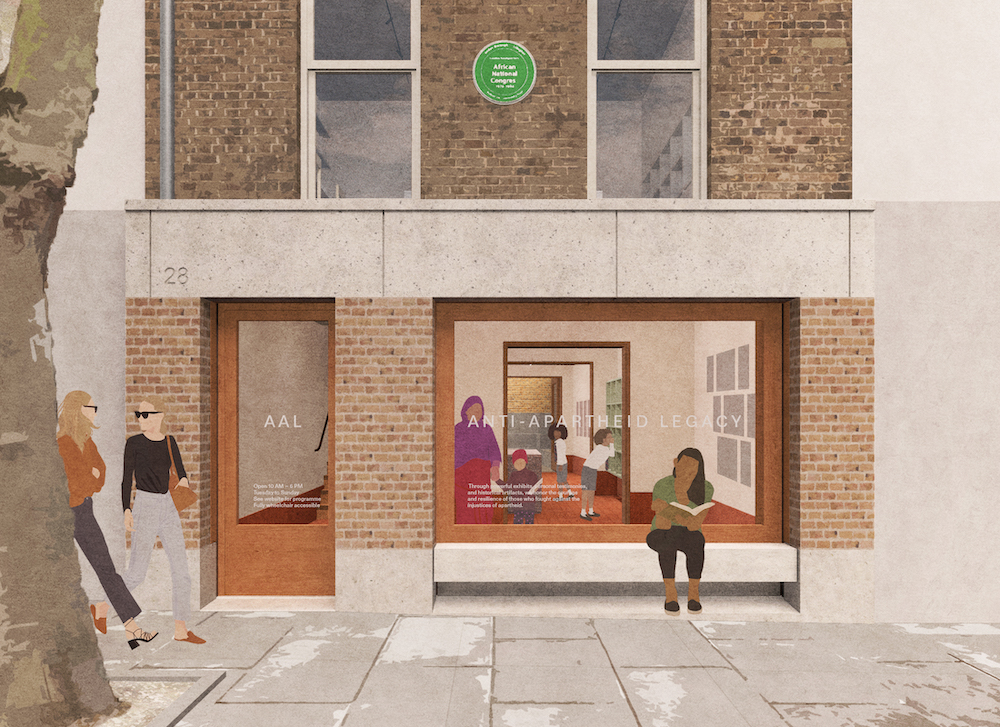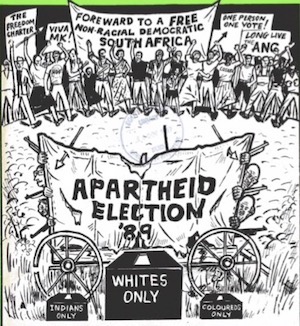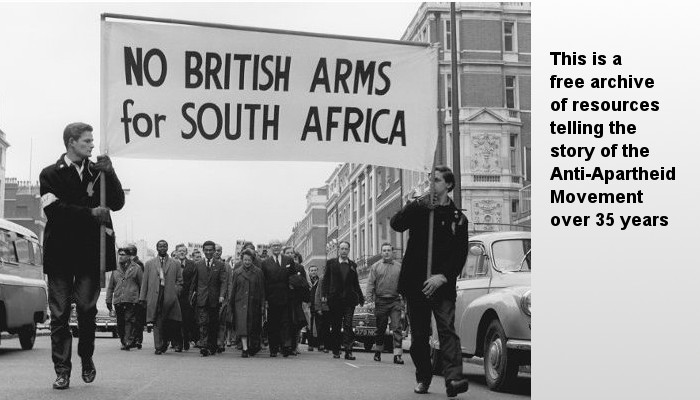
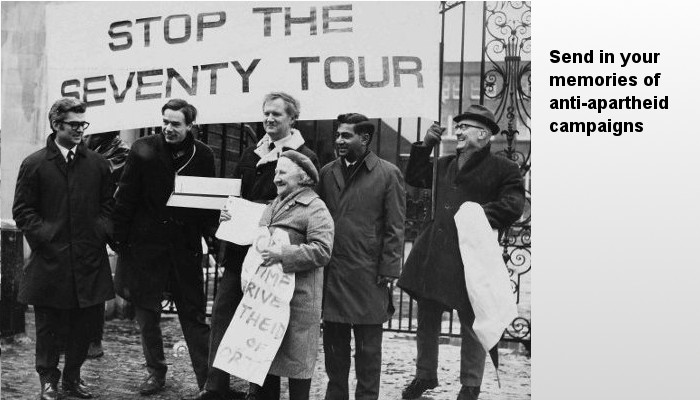
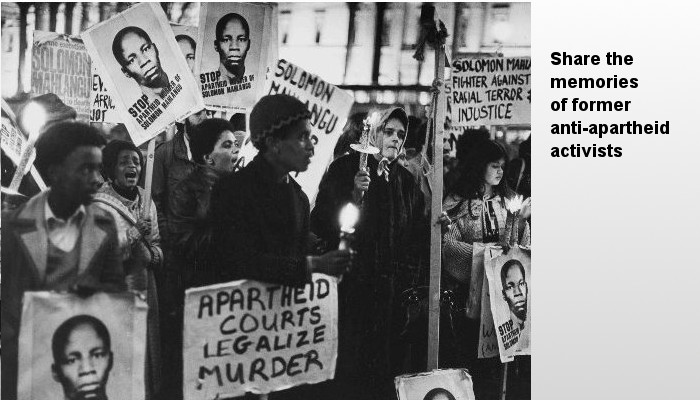
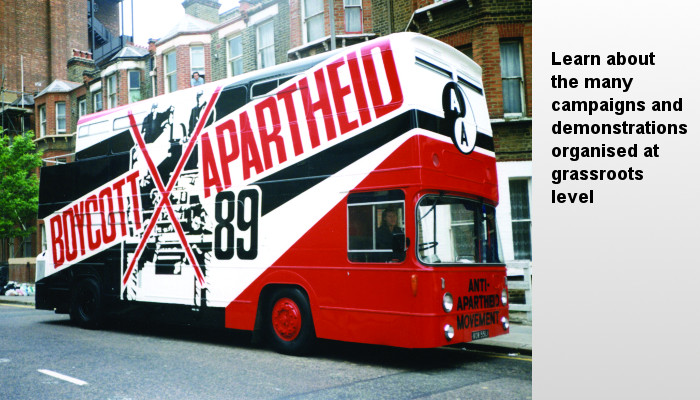
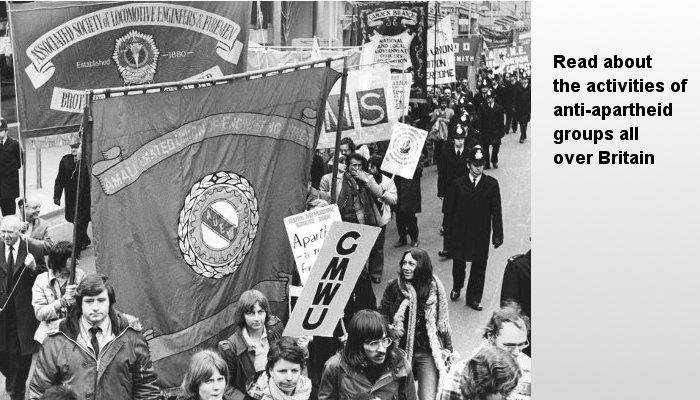
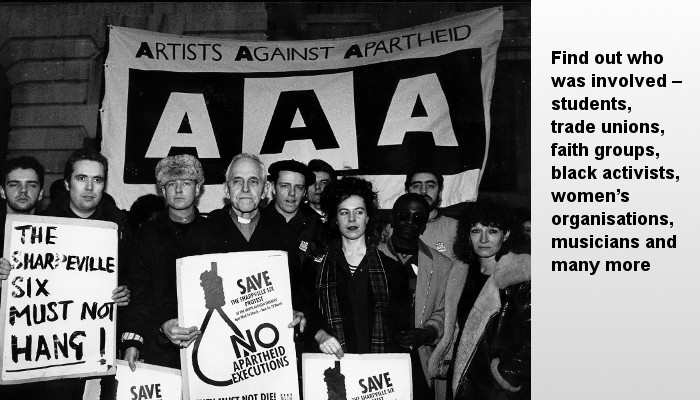
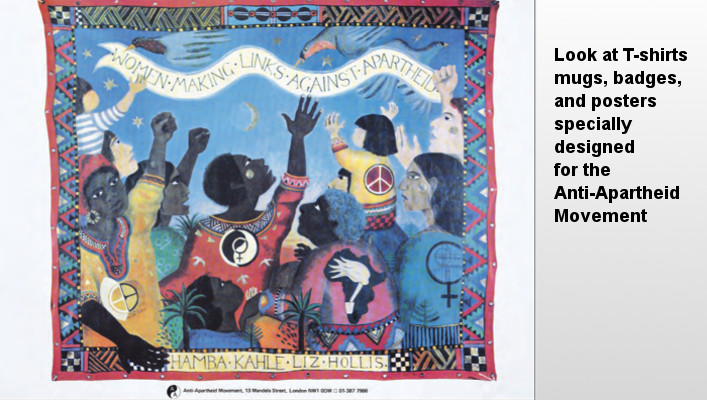
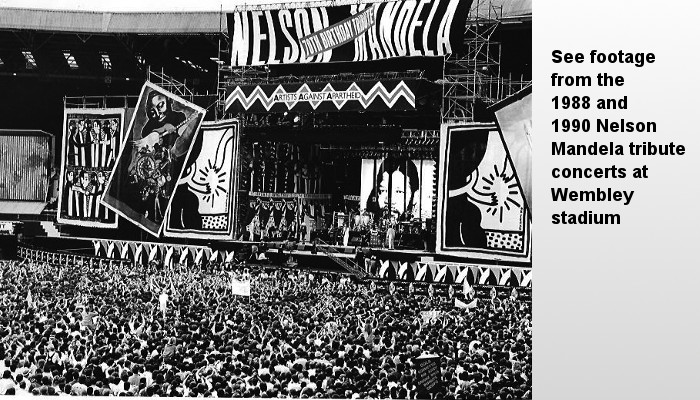
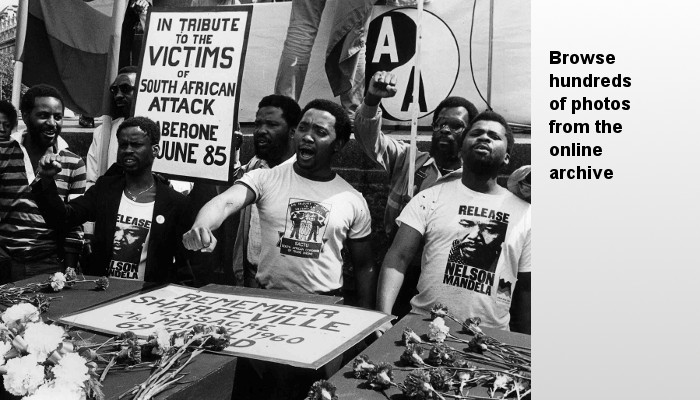
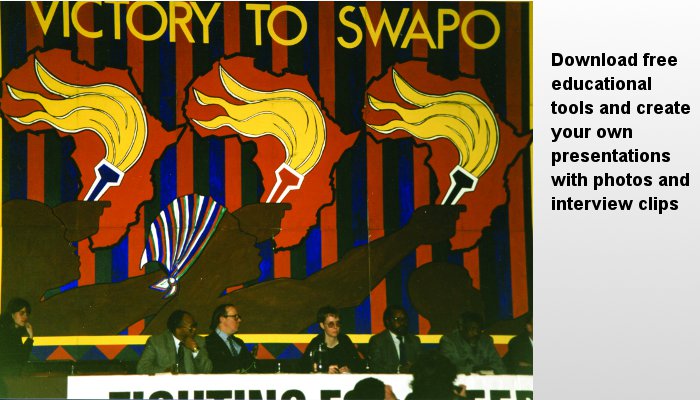
Forward to Freedom
Forward to Freedom tells the story of the British Anti-Apartheid Movement and its campaigns to support the people of South Africa in their fight against apartheid. The AAM also campaigned for freedom for Namibia, Zimbabwe, Mozambique and Angola, and against South Africa’s attacks on its neighbours.
On this website you can find out how hundreds of thousands of people all over Britain took part in anti-apartheid activities. You can watch demonstrations and concerts, and hear from some of those involved. We hope you will find it interesting and look forward to hearing from you. Please send your feedback and questions to
The website is part of a wider education project set up by the AAM Archives Committee that includes a pop-up exhibition and learning resources. It has been funded by the Barry Amiel & Norman Melburn Trust and the Heritage Lottery Fund, and organised in partnership with Action for Southern Africa (ACTSA).
The AAM archive is held at the Bodleian Library, University of Oxford and is open to researchers on application for a Bodleian reader’s card. The archive of Wales AAM is at the National Library of Wales, Aberystwyth and that of the Scottish AA Committee at Glasgow Caledonian University. Records for many local AA Groups and for the London Anti-Apartheid Committee are held at local record offices – see ‘Links’.
Follow us on Twitter: @aamarchives
Latest News & Events
Action for Southern Africa (ACTSA) will celebrate its 30th birthday at a special event at St Martin’s-in-the-Fields, Trafalgar Square, London on Tuesday 17 June. The party will include ‘bubbles’ and afternoon tea and a fundraising silent auction. It will be followed by the launch of ‘In a Rain of Dust’, an exposé of the effects of asbestos mining on South African communities, by David Kinley. ACTSA was set up as the Anti-Apartheid Movement’s successor movement in 1995 to combat apartheid’s continuing legacy throughout Southern Africa. To register for the party click here.
Building work is going ahead on the new Anti-Apartheid Centre of Memory and Learning at 28 Penton Street, the ANC’s former London HQ, following a 'breaking the ground' event last year. To watch the ceremony and hear Lord Peter Hain talking about the Centre’s aim of stimulating action against injustice, racism and inequality, click here. The project already has an exciting programme of events and commissions, including an exhibition at the Chelsea Physic Garden. To find out more click here.
South African artist Norman Kaplan’s linocuts and cartoons are on show at John Wesley's New Room, 36 The Horsefair, Bristol until 19 June. The exhibition is accompanied by a programme of schools workshops and outreach events. The exhibition will then move to Oxford – venues to be announced. Many of the artworks first appeared in the ANC's journal Sechaba and The African Communist. The exhibition is part of the 'All Shall be Afforded Democracy' programme organised by ACTSA, the AAM Legacy Centre of Memory and Learning project and AAM Archives to mark 30 years of South Africa's liberation.
https://antiapartheidlegacy.org.uk/resources/exhibitions/asbad/
Former activists tell their stories

A significant part of this project was to record the experiences of former activists in Britain. Jerry Dammers formed the Specials in Coventry in 1977.
An anti-apartheid activist from his school days he helped start Artists Against Apartheid in the UK to campaign and help enforce the cultural boycott.
He wrote the song, Free Nelson Mandela, which became an international hit and helped raise awareness of the plight of Mandela and political prisoners in South Africa.
You can hear him talk about writing the song.
Learn about the history of the Anti-Apartheid Movement
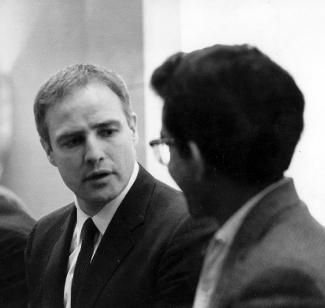 In 1964 Marlon Brando asked film directors, actors and producers to forbid the screening of their films before segregated audiences in South Africa on a visit to London.
In 1964 Marlon Brando asked film directors, actors and producers to forbid the screening of their films before segregated audiences in South Africa on a visit to London.
In this photograph he is at a press conference with the Anti-Apartheid Movement’s Hon. Secretary Abdul Minty.
The Rolling Stones broke off negotiations for a South African tour and the Beatles announced they opposed apartheid.
Read more about this history starting with the Boycott Movement in 1959, through the 1960s, 1970s, 1980s and 1990s.


